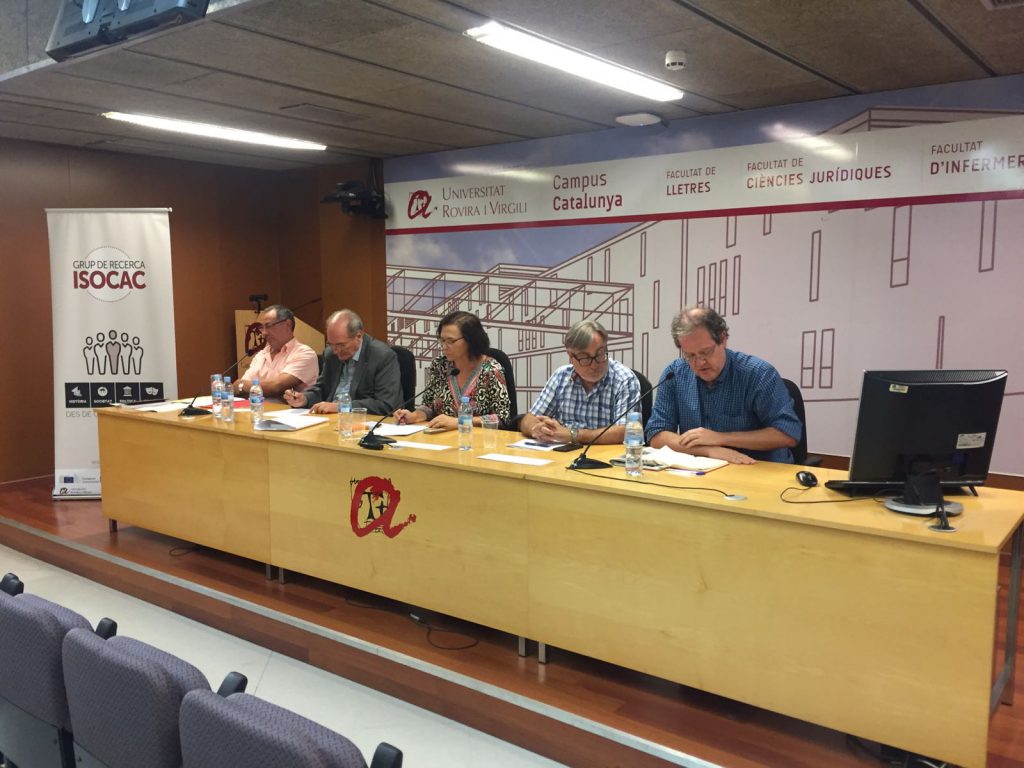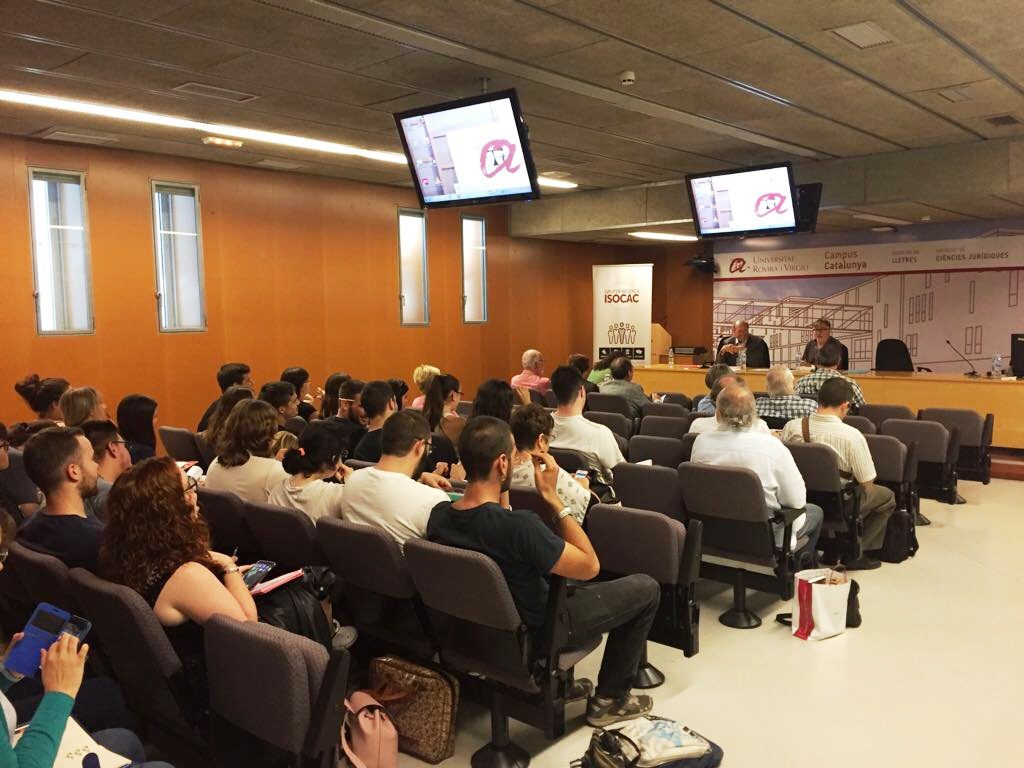10/10/2017
Seminar on the exile of Republicans to Mexico after the Spanish Civil War
One of the conclusions is that more research is needed to fully understand what happened to all the anonymous exiles that arrived in the country, in particular the women

One of the conclusions is that more research is needed to fully understand what happened to all the anonymous exiles that arrived in the country, in particular the women
The Seminar on Contemporary Catalan Exile, dedicated to Republican exile after the Spanish Civil War, was held on 5 and 6 October and organised by the ISOCAC research group (Ideologies and Society in Contemporary Catalonia). The seminar concluded with a round table involving five researchers from the URV and the Colegio de Jalisco in Mexico.
One of the conclusions from the seminar was that although there was a great deal of information concerning the fates of well-educated members of the exiled elite, little was known about the exiled masses, and that future studies on the exile of 1939 should focus more on the experiences of common people and in particular those of women, who are currently known for little more than being the wives of other exiles. Many exiles were able to carve out successful careers for themselves in Mexico, in contrast to those who remained behind in Spain, who were often the victims of persecution. Mexico actually benefitted from the influx of new arrivals because many of the Catalan and Spanish Republicans who fled were intellectuals or skilled workers who employed their talents in a country that was already quite developed. However, poor and unskilled arrivals were less fortunate. Mexico took in the highest number of Catalan and Spanish Republicans, more than all other countries in the Americas together, including the United States. The Catalan Government awarded its Gold Medal to the entire Mexican people in recognition and gratitude for their assistance.

During the seminar there were presentations by Catalan researchers and their counterparts from the Colegio de Jalisco postgraduate and research institute in Zapopan, Jalisco State. Salomó Marquès (UdG) talked about teachers, who were the object of particularly fierce persecution under Franco’s dictatorship due to their knowledge of the latest ideas in education, which also formed the basis of Republican ideology. Angélica Peregrina (Colegio de Jalisco) gave a comprehensive review of Mexican studies into Catalan exile, some of which have been the result of exchanges with the ISOCAC research group.
Josep M. Murià, also from the Colegio de Jalisco and son of an exiled Catalan Republican, discussed Mexican assistance to the Republic and the Republicans. He pointed out that Mexico had never recognised Franco’s regime, and added a little known detail: Manuel Azaña, second and last president of the Spanish Republic, died in Montauban in France, but he did so on Mexican consular territory. Ricard Ibarra, Archivists without Borders, gave a talk on saving endangered Catalan archives held abroad and on the digitalisation of their contents, which can be partly consulted in the National Archive of Catalonia in St. Cugat del Vallès. The organisation’s activities have focused primarily on Catalan archives held in Montevideo (Uruguay) and Havana (Cuba).
Gemma Domènech (ICRP-UdG) talked about architecture and the advanced and revivalist trends that would be extinguished by the dictatorship of Franco as the architects who pursued them were themselves pursued. Many of these, of course, would go into exile, principally in Mexico, and were proponents of rationalist architecture, in contrast to the academicism that would once again find favour under Franco’s regime. Josep M. Figueres (UAB) focused on the oratory El Pessebre by Pau Casals, the best-known Catalan Republican to go into exile. It is a work of great breadth and the most well-known piece of music to emerge from the Catalan exile.
The Mexican researchers were able to attend the seminar thanks to an agreement signed between the URV and the Colegio de Jalisco, which enables the mutual exchange of researchers and joint academic activities for a two-year period. This initial activity received funding from the Fundació Privada Mútua Catalana and was organised in collaboration with the Department of History and History of Art of the URV.
